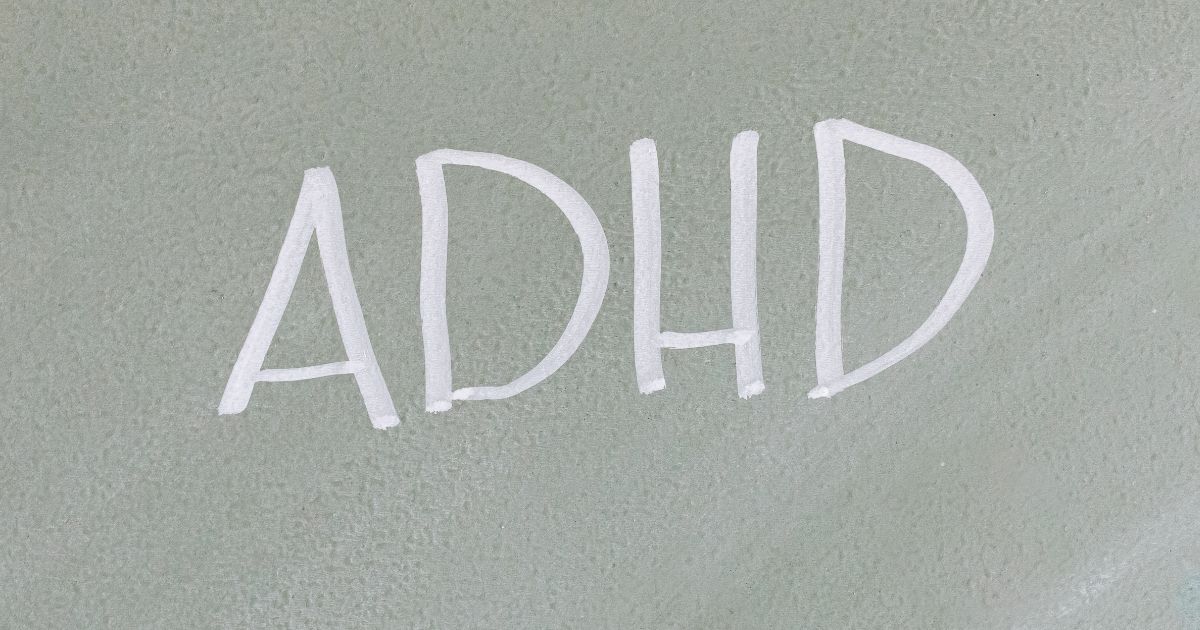Navigating life with attention-deficit/hyperactivity disorder (ADHD) can pose unique challenges, and for adults seeking clarity, understanding the assessment process is crucial. Many adults with ADHD may have navigated through life without a formal diagnosis, attributing their struggles to stress or personality traits.
This blog aims to clarify the assessment process, exploring the various components of identifying and understanding ADHD in adults.
Join us on this insightful journey as we learn more about ADHD assessment for adults!
Understanding ADHD: A Brief Overview

Attention-deficit/hyperactivity disorder is a neurodevelopmental disorder that affects both children and adults, impacting one’s ability to sustain attention, regulate impulses, and manage hyperactivity. This condition manifests in various ways, presenting academic, occupational, and social challenges.
The core symptoms of ADHD are categorized into two main types: inattention and hyperactivity-impulsivity. Inattention symptoms involve difficulties sustaining attention, organizing tasks, and following instructions. On the other hand, hyperactivity-impulsivity symptoms manifest as restlessness, fidgeting, impulsivity, and difficulty waiting for one’s turn. Understanding ADHD requires recognizing its multifaceted nature.
The disorder is not simply a result of laziness or a lack of discipline but has biological roots involving differences in brain structure and function. Neurotransmitters, particularly dopamine and norepinephrine, play a crucial role in ADHD, contributing to difficulties in attention regulation. Effective management of ADHD involves a combination of behavioral interventions, psychoeducation, and, in some cases, medication.
Tailored approaches considering an individual’s unique strengths and challenges are essential for successful intervention. By fostering awareness and understanding, society can create a more inclusive environment that supports individuals with ADHD in achieving their full potential. With the right strategies and support systems in place, individuals with ADHD can navigate their daily lives successfully, contributing meaningfully to their communities and beyond.
Reasons for Adult ADHD Testing: Exploring the Motivations
ADHD testing for adults is a critical step for individuals who suspect they may be grappling with attention-deficit/hyperactivity disorder. Adults are driven by various motivations to seek testing, each rooted in the desire for self-understanding and improved life management.
One primary reason for pursuing ADHD testing as an adult is the recognition of persistent challenges in various life domains. Adults with undiagnosed ADHD often face difficulties in maintaining focus at work, completing tasks, and meeting deadlines.
These challenges may lead to professional setbacks and hinder career advancement. In addition, individuals might struggle with organization and time management in their personal lives, impacting relationships and overall well-being.
Another motivation for testing arises from the emotional toll associated with undiagnosed ADHD. Adults with ADHD may experience heightened levels of frustration, anxiety, and a sense of underachievement. Understanding the root cause of these emotional struggles through testing can empower individuals to seek appropriate support and coping strategies.
In some cases, adults pursue ADHD testing due to a history of childhood symptoms that persisted into adulthood. Recognizing the continuity of ADHD symptoms can provide valuable insights into longstanding patterns of behavior and challenges, shedding light on potential underlying neurodevelopmental factors.
Diagnosis not only validates an individual’s experiences but also opens the door to tailored interventions, enabling adults with ADHD to navigate their personal and professional lives with greater understanding and success.
Types of Tests Available for Adult ADHD
Diagnosing ADHD in adults poses challenges as symptoms differ from those in children, and many specialists predominantly focus on diagnosing children. For instance, adult symptoms may not prominently display hyperactivity, presenting as racing thoughts rather than observable body movements.
Several assessment tools are available for providers to evaluate adults for ADHD:
- Test of Variable Attention (TOVA): This real-time assessment measures the ability to attend to non-preferred tasks, comparing performance to individuals with and without ADHD. However, TOVA alone may be inconclusive, as individuals with attention issues might compensate and perform well.
- Conners Adult ADHD Rating Scales (CAARS): This rating scale assesses attention, impulse control, and hyperactivity, determining symptom consistency with ADHD. Both self-report and observer scales are available, allowing someone familiar with the individual to provide input.
- Adult ADHD Self-Report Scale (ASRS): This self-report measure evaluates symptom alignment with DSM diagnostic criteria for ADHD.
- Behavior Rating Inventory of Executive Functioning-Adult Version (BRIEF-A): Focusing on executive functioning, this tool assesses task follow-through, activity shifting, organization, and memory recall. It compares individual difficulties with those of peers.
- Barkley Adult ADHD Rating Scales (BAARS): Similar to CAARS, BAARS uses self-report and observer data to measure symptoms against DSM criteria.
- ADHD Cognitive Test: While not definitive for ADHD diagnosis, cognitive assessments identify strengths and weaknesses, aiding in treatment planning.
Identifying ADHD in Adults: Who Can Provide a Diagnosis?
Navigating the process of finding a qualified provider for ADHD evaluation can be overwhelming, but there are several avenues to explore. Start by reaching out to your primary care provider or insurance company for potential referrals to professionals experienced in ADHD assessments. If you have an individual therapist, they can also be a valuable resource for recommendations.
Psychologists, particularly those with training in psychological evaluations, are often well-equipped to assess and diagnose ADHD. Additionally, some psychiatrists possess the expertise to evaluate and diagnose this condition.
Explore the possibility of assessments through local graduate psychology programs or medical schools, as they may offer services in your area. Harness the power of therapist directories, where you can specifically search for providers specializing in ADHD assessment and treatment.
Look for professionals with experience in this domain and can offer comprehensive evaluations tailored to your unique needs. For a streamlined and supportive process, consider reaching out to professionals from BVPS, specialists in ADHD assessment and treatment.
Our team is dedicated to providing personalized evaluations and psychological testing for ADHD in adults to help you gain a deeper understanding of your situation and guide you towards effective strategies for managing ADHD.
After Receiving a Diagnosis: What Comes Next?

Receiving a diagnosis, especially for a condition like ADHD, marks the beginning of a transformative journey toward understanding and managing one’s unique neurodiversity. After the initial diagnosis, individuals often face the crucial question of “What comes next?” This crucial moment serves as a gateway to a range of opportunities for growth, self-discovery, and tailored interventions.
First and foremost, individuals can embark on the path of psychoeducation, delving into resources that deepen their understanding of ADHD. Learning about the intricacies of the condition equips individuals with insights into how it manifests in their lives, fostering a sense of empowerment and self-advocacy.
Following diagnosis, the next step typically involves collaborative discussions with healthcare professionals, including psychologists, psychiatrists, and potentially therapists specializing in ADHD. This dialogue is essential for developing a personalized treatment plan that may encompass behavioral interventions, psychotherapy, and, in some cases, medication.
In addition to professional support, building a strong support network becomes crucial. Sharing the diagnosis with close friends, family, and colleagues fosters understanding and empathy, creating an environment conducive to growth and success. Furthermore, seeking support groups or communities with individuals facing similar challenges can provide a sense of camaraderie and shared experiences.
Beyond immediate interventions, individuals may explore strategies to optimize their daily lives. This could involve developing organizational tools, time management techniques, and coping mechanisms tailored to their unique strengths and challenges.
After receiving an ADHD diagnosis, the journey involves a holistic approach encompassing education, collaboration with professionals, building a support network, and implementing practical strategies. This comprehensive approach paves the way for individuals to navigate their lives with greater self-awareness, resilience, and a renewed sense of purpose.
If you or your loved one need an ADHD evaluation, do not hesitate to contact us, we’ll be happy to help!









